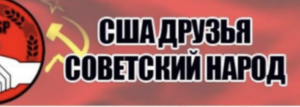Apologias for, and minimisation of, Russian and Ukrainian fascist and far-right movements span the political spectrum. Tankies and Christian nationalists alike present Russia as a strong counterpoint to Western—well, American—dominance, either because of its foreign policy or its repudiation of social-libertarian values like feminism, LGBTQ+ rights, and due process. Liberals, progressives, and centrists view Ukraine as liberal, progressive David fighting off the authoritarian Russian Goliath. And neoconservatives who have never got over the Cold War simply hate Russia reflexively and want to see it challenged once and for all. These varied interests have made strange bedfellows out of Moscow’s and Kiev’s supporters—but one thing ties together uncritical supporters of the Ukrainians or Russians: a refusal to acknowledge far-right and fascist movements in either country.
The pro-Ukrainian/anti-Russian coalition
Liberals, centrists, moderates, progressives, certain leftists, Brexiteers, neo-Nazis, anti-imperialists, white nationalists, and neoconservatives contort themselves to defend, excuse, or minimise fascist and far-right movements in Ukraine. This is clear through the motley band of countries that supports Ukraine or condemns Russia: the centre-left American, Spanish, German, and Canadian governments; the centrist French government; the centre-right British government; and the right-wing Italian and Polish governments. Poland’s social policies, especially for LGBTQ+ people, are only fractionally better than Russia’s—though at least Poles have freedom of movement thanks to the Schengen treaty.
Although liberals, progressives, and leftists stand for freedom of speech and expression and rightly oppose reactionary political movements in the West, they are unaware of, or choose to ignore, Ukraine’s far-right movements and their influence over the country’s civil society.
The pro-Russian/anti-Ukrainian coalition
Tankies, certain non-tankie leftists, paleoconservatives, progressives, soi-disant libertarians, neo-Nazis, multipolarists, anti-imperialists, Trumpers, Brexiteers, white nationalists, and alt-righters contort themselves to defend, excuse, or minimise fascist and far-right movements in Russia.
Ironically, rightists who defend Russia will raise the matter of Ukrainian far-right movements while promoting Christian nationalism, homophobia and transphobia, misogyny, and other reactionary ideas that sound just as fascist as they claim the Ukrainians are. Many tankies, meanwhile, will profess to be against gendered discrimination and right-wing religious movements, but excuse Russia’s repressions because it is a bulwark against American and NATO hegemony.
Right-libertarians’ motivation is a bit different—they are obsessed with minimising government spending if it has no direct effect on their lives, and so they focus on highlighting Kiev’s failings to stop their governments from providing Ukraine with weapons or humanitarian aid. In many cases, their motive is primarily selfishness, rather than true support for Russian policies. “Libertarians” who do actively support Russia are better called paleoconservatives.
Whitewashing Ukraine
The Kiev government has a tendency of scoring own-goals and appeasing nationalist movements, but it is far from being a Nazi regime. It is a worker-unfriendly neoliberal state whose social policies are usually more progressive than Russia’s. It is a wobbly democracy riddled with corruption, ethnic discrimination, and polarisation, but it can probably be fixed in the next decade under competent leadership.
Ukraine more than deserves support to fend off the Russian invasion—but that doesn’t mean that we can dismiss the relationship between Ukrainian nationalism and fascist movements. We do not have to defend the Azov battalion or claim that Ukrainian SS troops were victims of the Nazi regime when it is they who helped slaughter countless Jews as a trial run for the gas chambers.
Zelensky is no Nazi. But the Ukrainian government has been too spineless, too afraid of the far-right movements, too stubborn to admit that Ukrainian nationalism has an unsavoury side, to call these movements out for what they are. This is doubtless because Russian propaganda has unfairly caricatured Ukraine as a Nazi regime.
Whitewashing Russia
As for Russia, its position is indefensible. Any legitimate criticisms the Putin regime raises about far-right movements in Ukraine are hollow, since Russia itself is a far-right state. Nazis are primarily characterised as enemies of Russia, rather than persecutors of vulnerable minorities, including Jews, Roma and Sinti people, disabled people, queer and trans people, and political dissidents.
Putin persecutes many of the same populations that the Nazis did, especially queer people and dissidents, as well as Ukrainians who do not want to be “governed” by Russia (which is most of them). Paleoconservatives, alt-righters, Trumpers, and some white nationalists understand this—and this is why they want to cut aid to Kiev and serve as mouthpieces for the Kremlin. As for the tankies, multipolarists, and other leftist Russia apologists, they couldn’t care less what authoritarian regimes do to their people or the countries they attack as long as they’re rivals of the US and its allies.
Concluding remarks
Leftists—usually anarchists, Trotskyists, and democratic socialists—appear to be the only ones who condemn oppressive movements and policies in both Ukraine and Russia. This is the morally correct position to take.
We cannot tolerate fascism from either the Russian or Ukrainian side. It is possible to show solidarity with Ukraine and provide them support without sweeping its problems under the rug. We can reject linguistic and social discriminations against Russian-speaking Ukrainians and ethnic Russians without defending Putin’s monstrous actions in Ukraine. We can repudiate the excesses of Ukrainian nationalism while supporting their resistance against Russian domination. And we can defend Russian dissidents, as well as critics of the Ukrainian government, without assuming that any of these people support repression from either Moscow or Kiev.
